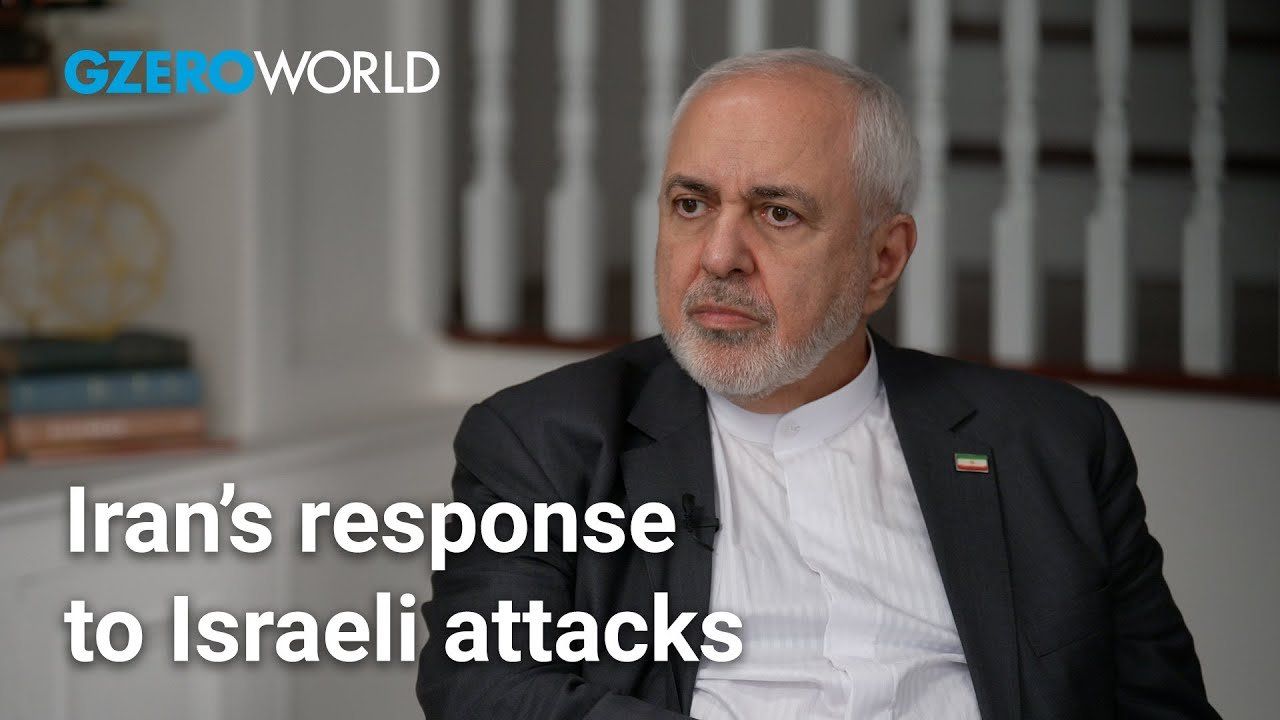October 01, 2024
Is the shadow war between Israel and Iran officially out in the open? Iran launched a wave of ballistic missiles into Israel Tuesday night, calling the attack a response to Israel’s assassination of Hezbollah leader Hassan Nasrallah, who was killed in Lebanon last week. Iran’s Revolutionary Guard Corps also said the attack was retaliation for the killing of Hamas’s political leader, Ismael Haniyeh, assassinated while visiting Tehran last July, as well as Israel’s April attack on an Iranian embassy in Syria, which killed an Iranian commander.
On GZERO World, Ian Bremmer spoke with Iran’s Vice President of Strategic Affairs Mohammad Javad Zarif on September 25, days before Nasrallah’s assassination and Iran’s missile response. Zarif, who served as Iran’s foreign minister until 2021, made it clear that Tehran had a right to defend itself and warned Iran could respond to Israel at any time. Zarif said that Iran had, up to that point, shown restraint in order to avoid being “dragged” into a wider war, which he claimed would play into Israeli interests.
“[Israel] thrives on tension, on conflict, and we will not provide it to them,” Zarif said less than a week before Iran fired missiles into Israel’s territory, “But that doesn’t mean we will fail to defend our territory, our people, and our guests.”
Watch Ian Bremmer’s full interview with Vice President Zarif on GZERO World beginning this Friday, October 4. Check local listings.
GZERO World with Ian Bremmer, the award-winning weekly global affairs series, airs nationwide on US public television stations (check local listings).
New digital episodes of GZERO World are released every Monday on YouTube. Don't miss an episode: subscribe to GZERO's YouTube channel and turn on notifications (🔔).
More For You
Ukraine's President Volodymyr Zelenskiy, Finland's President Alexander Stubb, Estonia’s Prime Minister, President of the European Commission Ursula von der Leyen and other European leaders visit memorial to fallen Ukrainian defenders at the Independent Square on the fourth anniversary of Russia's full-scale invasion, in Kyiv, Ukraine February 24, 2026.
Ukrainian Presidential Press Service/Handout via REUTERS
Somewhere in the Donbas region, Ukrainian soldier Artem Bondarenko says he hasn’t slept through the night in months as he defends Eastern Ukraine.
Most Popular
Members of the special units of the National Guard and the Secretaria de Seguridad Ciudadana stand guard in front of the Fiscalia General de la Republica, where the investigation into the operation in which Nemesio Oseguera Cervantes, alias "El Mencho", founder and leading head of the Cartel de Jalisco Nueva, was killed, is underway.
Félix Márquez/dpa via Reuters Connect
- YouTube
In this Quick Take, Ian Bremmer warns that US military strikes on Iran are “looking increasingly imminent” as diplomacy appears to stall.
© 2025 GZERO Media. All Rights Reserved | A Eurasia Group media company.
